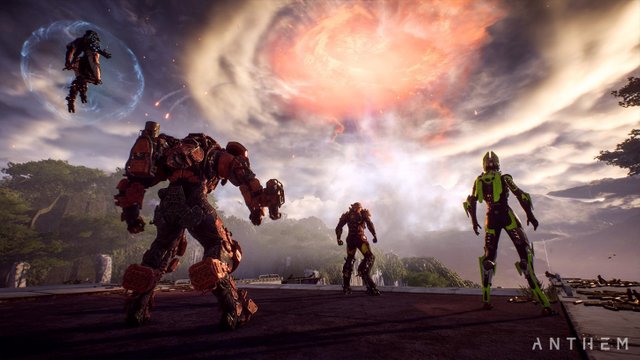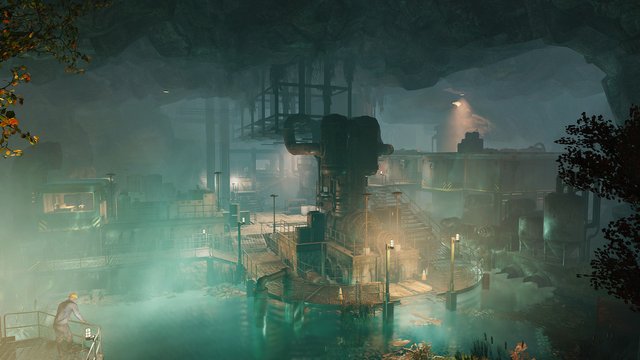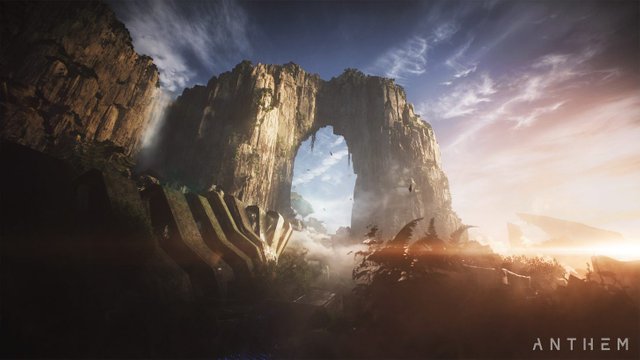The Curious Cases of Anthem and Fallout 76
I have written a fair bit about Fallout 76, but I've never tackled the other disastrous launch - Anthem. On the surface, there's a lot in common between these two releases. They launched within a couple of months of each other. Both came of age in the 90s, both built up formidable reputation as the two premier western RPG developers in the 2000s. Indeed, they only made RPGs up to 2015. Then, suddenly, both announced plans for highly ambitious evolving multiplayer games, with limited RPG aspects, both to release around the same time. So, what went wrong? In both cases, it was a case of over-ambition, though manifesting in different ways.

Let's start with Anthem. Kotaku has a great expose on Anthem's development, which I'd highly recommend reading. Contrary to what many believe, EA gave BioWare carte blanche after the tremendous success of the Mass Effect series. Yes, there was Mass Effect: Andromeda, but that was largely developed by a satellite studio - BioWare Montreal - which no longer exists. The flagship Edmonton studio went to work on Anthem after Mass Effect 3 and Dragon Age: Inquisition. Turns out, EA gave them too much freedom, and for years they built up highly ambitious designs and prototypes. Several years into development, they realised that it was not actually feasible to build such outrageous creative vision with current technology. That's when EA stepped in, and ordered a reboot for the project. The Anthem that released in early 2019 was built in less than 2 years, and it shows. However, what Anthem did boast of is incredible visuals - some of the most spectacular moments in gaming. They nailed the flying mechanics - the closest a game has ever been to an Iron Man simulator. The core gameplay is solid too. All of this is, of course, thanks to the Frostbite engine - technologically, Anthem is cutting-edge.
Meanwhile, Fallout 76 had the same problem, but also an opposite one. Their engine was just too antiquated, and pretty much all of Fallout 76's initial complaints stems from this. They vastly underestimated how difficult it would be to turn this highly dynamic engine into a multiplayer game, and the release ended up with a plethora of bugs and issues. It also had many limitations, chiefly, human NPCs and dialogue choices were not possible without new tech, which wasn't feasible for release window.

On the other hand, the developers took their time to build out a truly brilliant world, and equally excellent lore. Unlike Anthem, it was not a rush job, but like Anthem, the technology wasn't quite their to fulfill their vision. Anthem was definitely a rush job, though. While the core gameplay and graphics are top notch, the single player campaign is as formulaic as it gets. Sure, there are definitely some moments of "BioWare magic", but its few and far between.
Since release, the two games have gone their own separate ways. Many of Anthem's updates have been canceled, and they have gone back to work on a total reboot of the game. The Anthem 2.0 or NEXT (whatever you want to call it) is a long process with an indefinite release date. Looks like the BioWare Austin team (makers of SWTOR) has taken over the project. I'd imagine the reboot will be a cross-gen title, releasing after the next-gen consoles are here, probably some time in 2021.

Fallout 76, meanwhile, has fared better. The tech required to enable human NPCs - instancing - is now in game with Wastelanders. Most of the major bugs have been squashed, but despite their best efforts, it still remains a very dated engine with dated graphics and mechanics. The writing, world design and environmental storytelling remain as strong as ever, thankfully. Like Anthem, Fallout 76 also had an update blog this week. But unlike Anthem, Fallout 76 contains a packed roadmap with release dates set throughout 2020.
What about the futures of these two fabled studios? Both find themselves in a similar place. In another similarity, or quite the coincidence, both Fallout 76 and Anthem are now being developed mostly by their respective Austin, Texas branches. Yes, BioWare Austin and BGS Austin. I mean, what are the chances? Meanwhile, the flagship studios - BGS Maryland and BioWare Edmonton - have moved on to future projects. Of course, BGS Maryland has been deep into Starfield production since 2015, while BioWare's Edmonton branch started work on the next Dragon Age some time in 2018 or so. Of course, they have pre-production running on their flagship IPs - Starfield and Mass Effect. So, yes, quite a lot of similarities, but also with their own differences.
(Cross-posted from Hive Gaming)